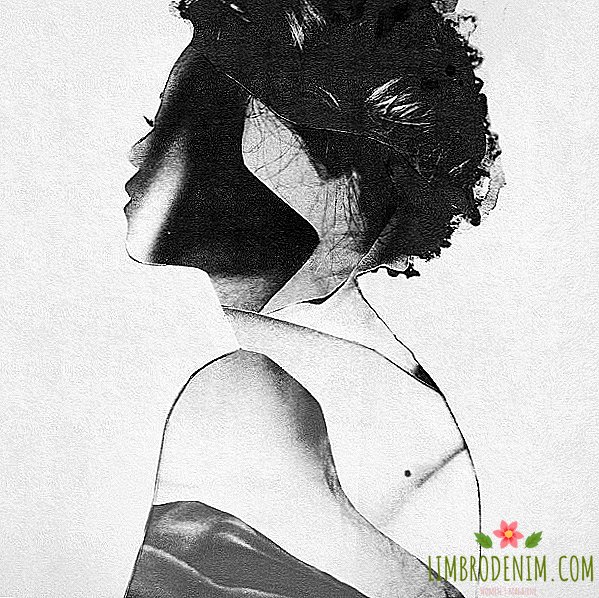Like in hand: How social networks change our communication
twelve years ago, coming up with Facebook, Mark Zuckerberg I hardly imagined that it was there that we would sit from morning till evening, make appointments, lead projects, fall in love and part. Virtual communication (just think about how archaic this wording sounds now) was embedded in our everyday life as infused. Together with him, the inevitable questions that scare adults, like teenagers, video games, have appeared: what will happen to live communication? Should we limit our presence in social networks - both for the sake of ourselves and those around us? What will our children say about their funny photos, laid out on public display without their knowledge? Is it possible, in the end, to like the foe of his friend? Social networks dictate new rules, but what they are - we, it seems, have not figured it out yet.
Some values, however, do not change: a person is still a social being, and communication is one of his basic needs, which was relevant in the era of epistolary novels, that in times of Instagram tape. At the same time, thanks to social networks, the communication mechanisms have changed irreversibly. Firstly, their range and functionality is growing every year: no one is surprised not only by Tinder, but even by a dating site for animals. All the metamorphosis occurring with social networks testifies only to their incredible vitality, and our sharp reaction to any changes in the Facebook issuance algorithms, for example, to our strong connection with them.

Many sociologists, anthropologists, philosophers and ethics are trying to understand how the same facebook affects our communication and behavior, what has changed and what to do with it next. There is even a separate discipline for this - digital sociology, digital sociology. For scientists, it is no longer a secret that social networks are the most important part of communication today, so they devote their careers to studying how people behave on 4chan or Reddit. Digital sociology is rapidly gaining momentum - you can even read about it in the book of the same name. In short, the world of social networks is very similar to the "normal" - with one exception: it is always in sight.
Most often, it is customary to talk about social networks in a slightly hysterical way, “what has become of us”: before, everything was better. Communication of the past, as befits a nostalgic view of life, is shrouded in an aura of romance, when people were not late for meetings, made phone calls, and April endured to drink in the courtyard. You can go further: the phone has spoiled everything, because of him people have forgotten how to write, it's time to revive the epistolary genre. Why, there is a letter - an extra way to avoid personal contact, it is better to solve all questions face to face.
It is possible to continue this insane chain to complete absurdity, but it is clear that this is only one, the most superficial view of the problem. The past cannot be returned: our communication, especially in the last century, has developed and transformed so rapidly that this process cannot be stopped. Just like a train in full swing, which changed the human movement, travel and migration. The trains of romance in Victorian England, by the way, also tried to ban at the time of their appearance - they feared that the world as they know it would change irrevocably.

We are faced with an exciting task: to form new rules of communication, to establish a new etiquette of the world of tsentey
In fact, Facebook, Twitter, Instagram, Snapshot and Tinder have become our new realities, with which we want it or not, we need to put up, and even better - work. The problem is not that it needs to be done, but that we simply do not understand how. All of us are like blind, defenseless kittens, who learn the world through trial and error and for whom these very mistakes are especially painful. On the other hand, we are faced with an amazingly fascinating task: to form new rules of communication, to establish a new etiquette of the world of tsentey. It is in many ways similar to the universal principles of “real” communication: not to disclose other people's information without consent (outing), not to incite fun for the sake of (trolling), not to engage in cybertravel, just like harassment outside the Internet, and so on.
Thanks to social networks, it is easier than ever to form and maintain relationships: what is friendly, what is romantic, but to keep them secret is much more difficult. Huskies have become a new universal stimulus, to the extent that one can develop a dependence on constant approval. The reverse side of the constant connection or illusion of this connection with the world around leads even to painful conditions, primarily associated with low self-esteem. As with any multifaceted phenomenon, the benefits of social networks are as much as harm: helping with the establishment of communication, trust, finding our place in the world, social networks simultaneously incline us to less physical activity and stimulate negative emotions like jealousy.

Facebook, the king of all social networks, is usually blamed for encouraging exhibitionism, even in such socially important moments as the campaign # ЯНЕ I'm afraid of Spokes. Everything that gets into it really turns out to be visible, even if it is a field of close friends and acquaintances. In Russia, the social network has also become an important socio-political field of action: for many, it is not just a place for family photos, but a platform for official statements, a place for establishing working relationships. We build a prism through which we would like to be perceived - without noticing, however, many small things to which we are obliged by the mechanics of the social network. So, likes become not just a passing approval, but the choice of the party to the conflict, and the reaction to the post or its absence is an equally loud political statement.
The fact that social networks inevitably confront us with what would previously remain hidden can be perceived as a disaster. Indeed, this is the amount of information that we are sometimes unable to process (do you need it today and right now these photos of a foreign dog in the country?), Sometimes - painful (how about photos of the former?), Which is embedded in one information stream with repost world news, invitations to five more parties on Saturday and news about who ate what he thought and where he went. This is no longer a stereotype about "emigration to the Internet", this is a clash with real life - just artfully filtered, and not quite by you. Instead of guessing and fantasizing, you know at least relatively certain: this dog lives better than you, and the former are all right. Of course, we see only a part of reality. But this in its own way can play into the hands: this is how we are forced to face its uncontrollable and unpredictable version, finding ourselves face-to-face with our fears and problems.

We are forced to face an uncontrollable version of reality, facing our fears and problems face to face.
Facebook is beautiful because it offers many pictures of the world. Adapting to each of us (we leave out of the brackets how well this works), it forms millions of individual points of view. Sometimes, however, the belief in the very images that we create on the Internet can lead too far. In fact, social networks - this is an excellent reason to rethink their own and other people's borders. A public expression of our opinions shows how little we catch ourselves in understanding our actions in principle, just social networks are becoming more and more noticeable. Not that we have no right to make mistakes - everyone has it, and this should not be forgotten either. But we must remember that on the Internet there is always someone wrong and there will always be at least someone who will indicate this. In a sense, the world has become more transparent, and this is neither good nor bad.
We all turned out to be participants in a global social experiment. Each of our actions in social networks becomes a contribution to the treasury of a huge database, analyzing which you can draw many curious conclusions about yourself and others. Social networks do not just allow, but also oblige to think about where the border of the personal and public lies - and how each of us has the right to outline our own and respect someone else's. In many ways, it is still terra incognita, stepping on which you should not rush to conclusions, as in "real" life. Because it's time to reconsider the terminology: Facebook, tinder and instagram - this is real life in 2016.
Images: Natalia Merzlyakova - stock.adobe.com, guteksk7 - stock.adobe.com





